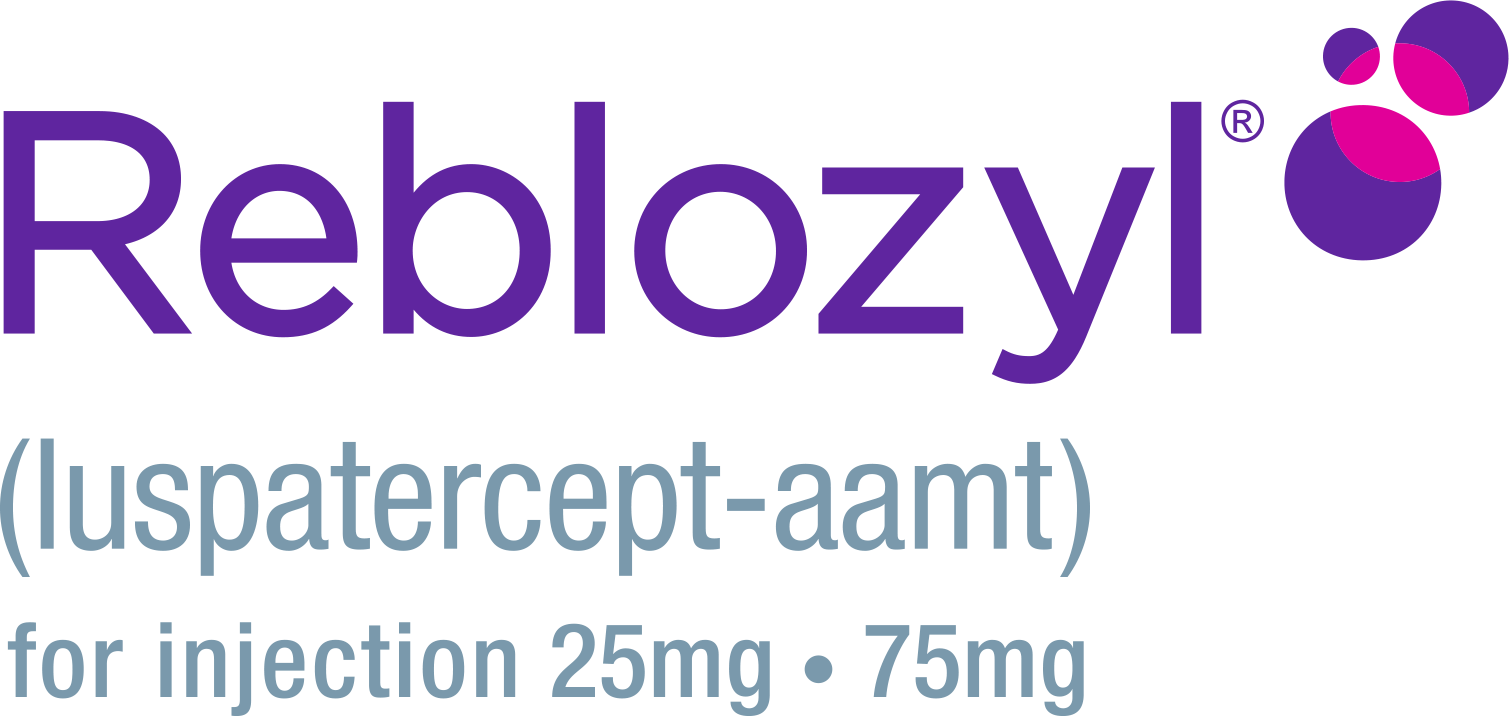Helpful resource to download
This resource is available to help you navigate starting and staying with REBLOZYL.

REBLOZYL Patient Brochure
The patient brochure provides you with everything you need to know about starting starting for beta (β) thalassemia (BT) with REBLOZYL.
Websites to explore for more information about BT
The following organizations provide disease education, additional support, and expert opinions. This list of independent organizations is provided as an additional resource for obtaining information related to BT. This list does not indicate endorsement by Bristol Myers Squibb of an organization or its communications.
Select each organization's logo below to visit their homepage and learn more.
Glossary
Alpha globin: One of two protein building blocks of hemoglobin
Anemia: Low red blood cell (RBC) count
Beta (β) globin: One of two protein building blocks of hemoglobin
Beta (β) thalassemia (BT): A blood disorder where your body makes less hemoglobin than normal
Blood pressure: The force of circulating blood on the walls of blood vessels
Bone marrow: The soft interior of the bones where new blood cells are created
Chelation therapy: A chemical compound used to remove toxic metals from the body
Erythroid cells: An immature red blood cell
Erythroid maturation agent (EMA): Treatment that helps red blood cells to mature
Erythropoiesis: The formation of red blood cells in blood-forming tissue within the bone marrow
Extramedullary Hematopoietic (EMH) Masses: When blood cells form outside of the bone marrow
Gene: The physical or mental traits that are passed down from parent to child
Hemoglobin (Hgb): Oxygen-carrying protein found in red blood cells
Hormone: A chemical made by your body that travels in the bloodstream to send messages throughout your body
Hydroxyurea: A type of medicine used to treat certain cancers
Immunosuppressant: An agent that decreases the body’s immune response
Ineffective erythropoiesis (IE): The inability of immature red blood cells to become mature
Kilogram (kg): A unit for measuring your weight. One kg is 2.2 pounds
mg/kg: The dose of your medication based on your body weight
Milligram (mg): A unit for measuring weight
Placebo: An inactive substance that looks the same as, and is given the same way as, an active drug or treatment being tested
Protein: An important part of cells that is responsible for the structure, function, and maintenance of your body and organs
Red blood cells (RBCs): Blood cells that carry oxygen from the lungs to all cells in the body
Red blood cell transfusion: A process that adds red blood cells into the bloodstream
Splenectomy: The removal of your spleen through surgery
Stem cell: All immature cells before they mature and are given a specific role
Stem cell transplant: A type of treatment that replaces your abnormal cells with healthy stem cells from a donor
Symptom: A physical or mental sign of a condition or disease
Transfusions: Procedures that add parts of blood or whole blood into the bloodstream
Transfusion burden: How often you need to have red blood cell (RBC) transfusions





